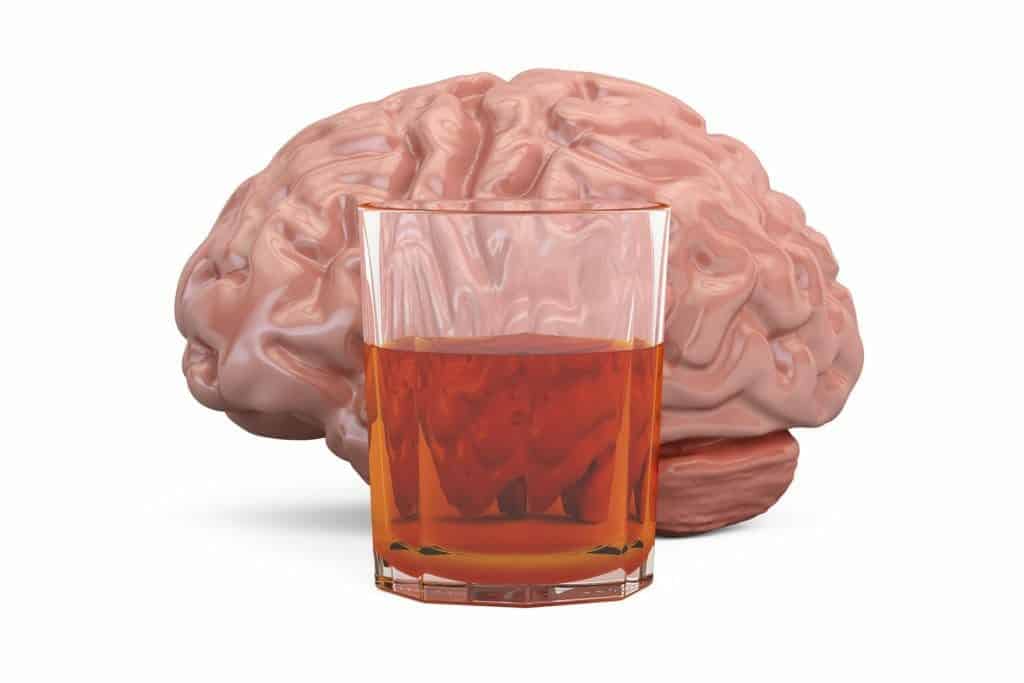If you’ve ever drank alcohol or watched someone you know indulge, it’s pretty clear that it can significantly affect the brain. After even just a few drinks, it’s possible for people to have difficulty walking, slurred speech, slow reaction times and blurred vision. Side effects like these often correct themselves once drinking stops. But what happens to your body (and your brain) when you drink heavily over a long period of time?
When does drinking become a problem?
Addiction and Your Brain
Drugs and alcohol chemically alter the brain’s structure, and it doesn’t take long for it to respond to the presence of addictive substances. How does it all work? Certain activities (basically anything that makes us feel good or happy) cause a chemical called dopamine to be released in the brain.
A supercharged rush of dopamine is released to the brain through the use of drugs and alcohol. Your brain remembers this euphoric feeling, and can actually rewire itself into classifying these substances as something it needs. The more you drink, the more dependent you and your brain become on alcohol to function.
Factors That Influence Alcohol’s Impact
There are a number of factors that influence how (and to what extent) alcohol affects the brain. These include:
- How much a person drinks
- How often a person drinks
- How long a person has been drinking
- A person’s age, level of education and gender
- A person’s family history of alcoholism
- A person’s general health status
Effects of Alcohol
Even moderate amounts of drinking can impact your brain. But the more you drink (volume and frequency) the more serious the side effects become. Consider the following long-term side effects of alcohol on the brain.
- Anxiety
- Depression
- Paranoia
- Blackouts and memory loss
- Thiamine deficiency (among other chronic vitamin deficiencies)
- Development of Wernicke–Korsakoff Syndrome
- Hepatic encephalopathy (brought about by prolonged liver dysfunction)
- Cognitive impairment (slow processing of information, difficulty in learning new things and reduced problem-solving ability)
- Wasting away of brain tissue
- Scar tissue in the brain
- Impaired balance and coordination
Although it is possible for some of the heaviest drinkers to develop irreversible brain-damage syndromes, most of the side effects associated with alcohol consumption can be improved upon or eliminated. Depending on the severity of the addiction among other factors, once alcohol consumption stops, healing can start to take place (few weeks to a year).
Meet Margi
“Cycles of Change was my third rehab after a life long struggle with alcohol dependence. There I found a staff that was caring and attentive. The program was structured to include all aspects of recovery, not only my addiction but my spirit and body. I learned more here about the disease and about myself than I had anywhere else. I am going on three years of being clean and sober and my son is also an alumni with almost two years clean. If you are tired of being tired, if you are ready for a sober life I highly recommend Cycles of Change, they saved both my son’s and my life.”
Worth the Work
Alcoholism, like other addictions, is a disease. It’s not a choice you made and it’s not a reflection of who you are. If you’ve done the hard part and come to terms with the fact that you are dependent on alcohol, it’s time to pursue the help you need.
Facing your addiction alone can be overwhelming, but Cycles of Change Recovery Services is here to help. We offer a variety of alcohol treatment programs and our counselors will work with you to help you choose the best program to support your goal of sober living. Fill out this form or call us today at (661) 630-4176 for more information.


